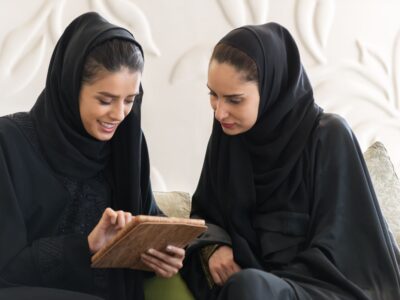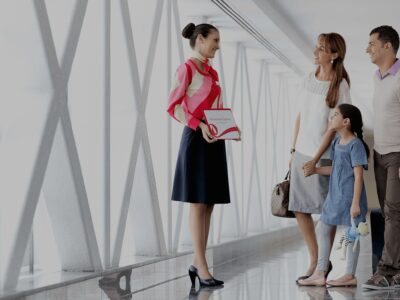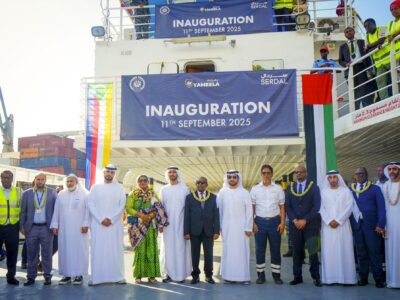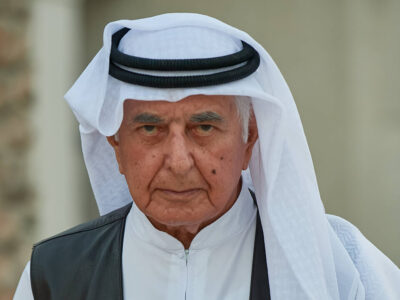After the United Nation’s Sustainable Development Goals (SDGs) were established in 2015, the UAE was among the nations that responded enthusiastically. The goals were integrated as part of the nation’s own Vision-2021 development plan. In 2016, the UAE was recognised as the world’s largest donor, with an Official Development Assistance (ODA) per gross national income (GNI) of 1.12 percent, which is considerably more than the UN target of 0.7 percent.
Subsequently, in 2017, the UAE’s National Committee on SDGs was formed, entrusted with facilitating multi-stakeholder engagement and achieving both short-term targets and long-term objectives. The ensuing period was marked by measurable progress, before the pandemic brought everything to a standstill. Today, as the nation assimilates into the post-Covid, new normal, there is a need to re-evaluate priorities and strategise accordingly, factoring in the issues that the pandemic has brought to the fore. So, there are two objectives at hand: making up for lost progress due to the pandemic and bringing the progress on track to 2030.
The Covid-19 outbreak and the ensuing disruptions have heightened people’s awareness of environmental challenges, sustainable practices, climate change, energy consumption, and urbanisation. And this newfound awareness has turned sustainability into an economic opportunity. In a recent study, the global business opportunity by achieving SDGs was valued at a whopping $12 trillion. So, what will the endeavour of pursuing SDGs in the post-Covid world entail for a growth economy like the UAE?
Securing the basics
Food, water, sanitation, health, and wellbeing are fundamental aspects to our existence. These interdependent aspects merit greater attention in the post-Covid world, because the pandemic has impacted their accessibility and quality. According to the UN, Worldwide, an additional 70-161 million people experienced hunger as a result of the pandemic – which took the total tally of undernourished people to 720-811 million. Also, water scarcity, which affects more than 40 percent of the global population, is projected to rise, according to official estimates. And, unfortunately, both food and water have not been the UAE’s – and the larger MENA’s – forte.
It is therefore of great importance to work towards goals under SDG-6, clean water and sanitation; SDG-2, zero hunger; and SDG-3, good health and wellbeing – which constitute the basic necessities to sustain life.
But these are causes with deep-rooted socio-economic concomitants like poverty, civil unrest, unemployment, and poor governance. Plausible solutions must be tailored to location-specific issues. For example, within the context of the UAE, the focus should be on addressing geographical deterrents, agricultural distress, soil salinity, etc. Solutions like sand technology, which are fit-for-purpose to the UAE, could facilitate multistakeholder actions for localised organic food production. This could help the nation scale its SDG-2 and SDG-6 progress to that of SDG-3, where – according to SDG dashboard – the UAE is well on track to achieve the goal.

Making cities sustainable and productive
SDG-11, which calls for safe, resilient, and sustainable cities, warrants targeted and time-sensitive actions in the post-Covid world. If anything, the pandemic demonstrated how fragile cities are during disruptive events. Although they account for merely 3 percent of the landmass, they contribute 60 percent to GDP and account for 70 percent of greenhouse gas emissions and 60 percent energy consumption, globally. In other words, cities have great economic implications but with accompanying problems. Another way to look at this is that we only have 3 percent of the global landmass to optimise for 100 percent positive impact.
Yet, this small portion is a complex network of utilities, public transport, high-rise buildings, waste processing, and more. So, optimisation is anything but smooth, requiring critical interventions across the value chain and a confluence of top-down initiatives, bottom-up participation from residents, and tech-driven solutions from the private sector. In the MENA region, the impending rapid urbanisation necessitates novel solutions like sand technology-powered decentralised rainwater harvesting and vertical farming, which consolidate a number of SDGs under a single action. In the UAE, thanks to planned urbanisation, the scope for sustainable transformation is high and, as expected, city centres are improving, as per SDG dashboard.
Driving social change for sustainable growth
In the past two years, the UAE has been a beacon of progressive change in the MENA region. Landmark initiatives like the golden visas for entrepreneurs, the net-zero-emissions-by-2050 pledge, and several women-centric programs testify to this effect. And in doing so, the UAE has made significant strides towards becoming a knowledge-based economy characterised by reduced inequalities (SDG-10), gender equality (SDG-5), and sustained, inclusive and sustainable economic growth, full and productive employment and decent work for all (SDG-8).

The rationale behind UAE’s sweeping policies is that social change is a prerequisite to sustainable transformation. It is only when we weave transparency, economic inclusion, and diversity into the socio-economic fabric that a country can truly prosper. Also critical to the social-change discourse is ensuring quality education and promoting lifelong learning opportunities for all (SDG-4), where the UAE has made stellar progress to stay on track. However, following a prolonged closure of educational institutions and disruption to knowledge flows, there is a need to ramp up education-related policies.
Reversing climate change and promoting clean energy
Among the goals that have gathered a degree of immediacy following the pandemic, climate action (SDG-13) and affordable and clean energy (SDG-7) are the prominent ones. Climate change is nearing a point of no return at an alarming rate, requiring targeted actions in high-carbon-emitting sectors like transportation, construction, etc. These actions must complement other SDGs like sustainable cities and Industry, innovation and infrastructure (SDG-9), where the UAE is on track to achieving the stipulated targets.
The Expo 2020 Dubai provided a perfect avenue for the UAE to demonstrate its progress. Besides featuring as a sub-theme for the mega event, sustainability has a dedicated pavilion at the Expo. Across the entire venue, the UAE has set more than 40 sustainability-related KPIs, touching upon reducing water usage, managing waste, and achieving LEED Gold Certification for permanent buildings, among other efforts that complement SDGs. The Expo Dubai is, in all likelihood, the ultimate testament to the UAE’s commitment towards achieving the goals by 2030.








